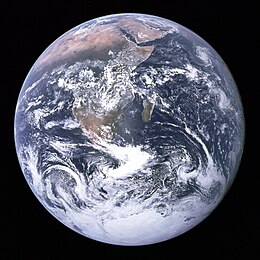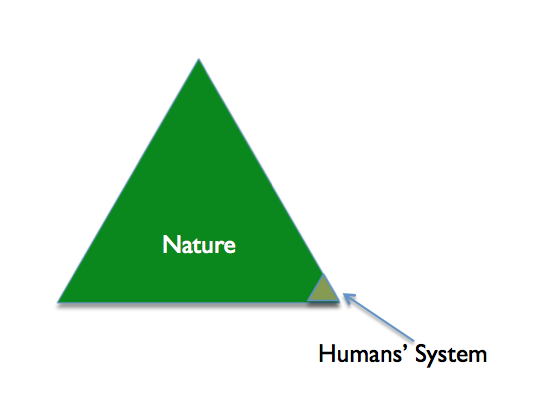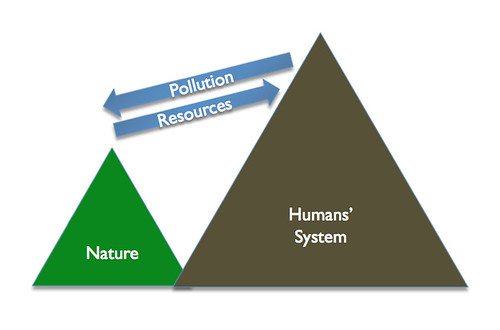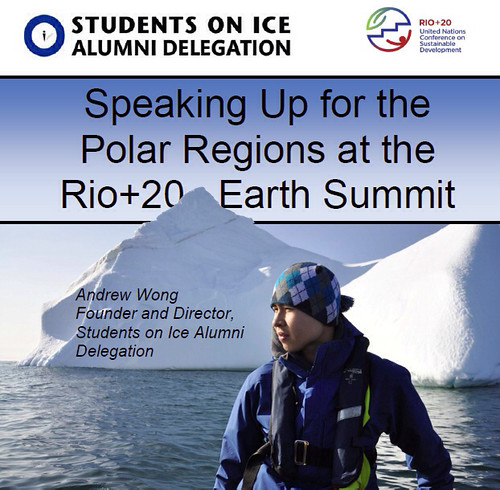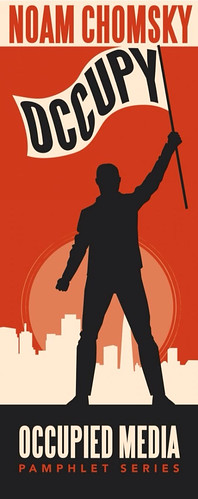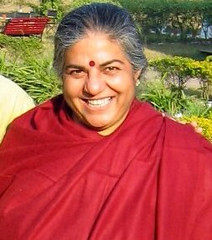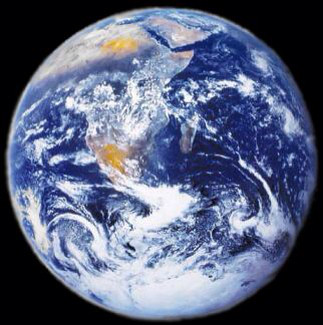One of our legacies from the last century, which was dominated by two world wars and the cold war, is a sense of security that is defined almost exclusively in military terms. It so dominates Washington thinking that the U.S. foreign affairs budget of $701 billion in 2009 consisted of $661 billion for military purposes and $40 billion for foreign assistance and diplomatic programs.
But the situation in which we find ourselves pushes us to redefine security in twenty-first century terms. The time when military forces were the prime threat to security has faded into the past. The threats now are climate volatility, spreading water shortages, continuing population growth, spreading hunger, and failing states. The challenge is to devise new fiscal priorities that match these new security threats.
Douglas Alexander, former U.K. Secretary of State for International Development, put it well in 2007: “In the 20th century a country’s might was too often measured in what they could destroy. In the 21st century strength should be measured by what we can build together.”
The good news is that in the United States the concept of redefining security is now permeating not only various independent think tanks but the Pentagon itself. A number of studies have looked at threats to U.S. interests posed by climate change, population growth, water shortages, and food shortages-—key trends that contribute to political instability and lead to social collapse.
Although security is starting to be redefined in a conceptual sense, we have not redefined it in fiscal terms. The United States still has a huge military budget, committed to developing and manufacturing technologically sophisticated and costly weapon systems. Since there is no other heavily armed superpower, the United States is essentially in an arms race with itself. What if the next war is fought in cyberspace or with terrorist insurgents? Vast investments in conventional weapons systems will be of limited use.
The far-flung U.S. military establishment, including hundreds of military bases scattered around the world, will not save civilization. It belongs to another era. We can most effectively achieve our security goals by helping to expand food production, by filling the family planning gap, by building wind farms and solar power plants, and by building schools and clinics. More
Humanity is today playing in the major leagues. We are in a sink or swim situation. If we can keep this our one and only home planet habitable by mitigating and adapting to the changing climate, switching to alternative sources of energy such as solar, wind, geothermal, wave, ocean thermal and nuclear, sequester CO2 and provide the population with adequate supplies of water and food and bring the population under control, humanity may survive . Cooperation between states globally is rhe only answer. Editor
Sustainability equates to a sustainable global society founded on respect for nature, universal human rights, economic justice, and a culture of peace.
Thursday, May 31, 2012
Tuesday, May 29, 2012
John Lius's Green Gold Documentary
John Lius, a photographer, discovered almost by accident, how to rehabilitate damaged ecosystems.
Labels:
ecosystems,
permaculture,
rehabilitate
Sunday, May 27, 2012
Limits We are Reaching – Oil, Debt, And Others
The world is clearly reaching many limits. This graphic below shows how I see man interacting with natural systems, back before man discovered fire and back before man became intelligent enough to kill off whole species.
In these earliest days, human systems were a part of the natural system. Humans behaved like other animals, and fit easily into the natural order. There weren’t many humans–probably under 100,000 total in the whole world.
This is the way I see man’s systems interacting with the natural system now:
In my illustration, human systems are sufficiently interrelated that they combine to form one single interrelated “humans’ system”. This system draws its power from the natural system. It also puts its waste products back into the natural system. Because of entropy, we know that everything we create eventually ends up as waste products. In order to keep the humans’ system going, we need to keep adding new energy to the system, partly to offset entropy and partly to support the growing world population.
What limits are the human and natural systems reaching now?
Oil Limits
According to EIA data, crude oil production in 2005 averaged 73.6 million barrels a day. It has grown very little since then. Crude oil production for 2011 averaged 74.0 million barrels a day. In the first two months of 2012, crude oil production was higher yet, averaging 75.6 million barrels a day. More
In these earliest days, human systems were a part of the natural system. Humans behaved like other animals, and fit easily into the natural order. There weren’t many humans–probably under 100,000 total in the whole world.
This is the way I see man’s systems interacting with the natural system now:
In my illustration, human systems are sufficiently interrelated that they combine to form one single interrelated “humans’ system”. This system draws its power from the natural system. It also puts its waste products back into the natural system. Because of entropy, we know that everything we create eventually ends up as waste products. In order to keep the humans’ system going, we need to keep adding new energy to the system, partly to offset entropy and partly to support the growing world population.
What limits are the human and natural systems reaching now?
Oil Limits
According to EIA data, crude oil production in 2005 averaged 73.6 million barrels a day. It has grown very little since then. Crude oil production for 2011 averaged 74.0 million barrels a day. In the first two months of 2012, crude oil production was higher yet, averaging 75.6 million barrels a day. More
Labels:
limits,
limits to growth,
resources
Thursday, May 17, 2012
The Israeli Dervish
Miki Cohen is a 58-year-old Israeli attracted to Sufi mysticism and the writings and philosophy of Rumi. We follow him to Kony, the resting place of Rumi in central Turkey and the religious centre for his followers, as he becomes the only Israeli granted access to the inner sanctum of the whirling Dervish order of Islam.
Students Speak Out For Polar Regions
STUDENTS SPEAK UP FOR THE POLAR REGIONS
Date & Time: June 18, 2012 1930-2100
Venue: T-4, RioCentro
Organized by: Students on Ice Alumni Delegation
Co-organizers: We Canada Initiative, APECS Brazil
Students Speak Up for the Polar Regions aims to educate international decision-makers on the emerging challenges of sustainable development in the polar regions. This event will feature speakers from the Students on Alumni Delegation (www.soidelegation.com). Members of this international youth delegation are united by the rare privilege of having visited the Arctic and Antarctica. During this event, delegates will share first-hand experiences of visiting the poles to explore the importance of these regions to the global environment. Nine key sustainable development challenges facing the polar regions will be addressed, and implementable solutions will be highlighted. Ultimately, the connection between polar regions and Rio+20 will be made, clearly answering how Rio+20 can address polar challenges. The second half of the side event is a multi-stakeholder panel on "Polar Sustainable Development: Required Leadership and Solutions for the Next Decade" with notable experts from polar science, policy, and governance. This event aims to catalyze national delegations and civil society to commit to the sustainable development and protection of the Arctic and Antarctica.
If you know of anyone going to Rio+20 that the delegation should reach out to, please forward this to them.
Date & Time: June 18, 2012 1930-2100
Venue: T-4, RioCentro
Organized by: Students on Ice Alumni Delegation
Co-organizers: We Canada Initiative, APECS Brazil
Students Speak Up for the Polar Regions aims to educate international decision-makers on the emerging challenges of sustainable development in the polar regions. This event will feature speakers from the Students on Alumni Delegation (www.soidelegation.com). Members of this international youth delegation are united by the rare privilege of having visited the Arctic and Antarctica. During this event, delegates will share first-hand experiences of visiting the poles to explore the importance of these regions to the global environment. Nine key sustainable development challenges facing the polar regions will be addressed, and implementable solutions will be highlighted. Ultimately, the connection between polar regions and Rio+20 will be made, clearly answering how Rio+20 can address polar challenges. The second half of the side event is a multi-stakeholder panel on "Polar Sustainable Development: Required Leadership and Solutions for the Next Decade" with notable experts from polar science, policy, and governance. This event aims to catalyze national delegations and civil society to commit to the sustainable development and protection of the Arctic and Antarctica.
If you know of anyone going to Rio+20 that the delegation should reach out to, please forward this to them.
Labels:
polar regions,
Rio20,
students
Wednesday, May 16, 2012
Ecocide: A Crime Against Peace
Today large scale habitat destruction, massive soil depletion, extensive deforestation lead to worldwide disruption of natural cycles and the irreversibility of extinction. Today instances of mass extinction occur with greater frequency, greater rapidity and greater impact than at any other time. Each day 100 living species become extinct, 1000 acres of peat bogs are excavated and 150000 acres of tropical rainforest are destroyed. Each day, 2 million tons of toxic waste is dumped in to our rivers and seas, 22 million tons of oil are extracted and 100 million tons of greenhouse gases are released. http://www.thisisecocide.com/
Tuesday, May 15, 2012
'Over-consumption' threatening Earth
Latest survey says we are using 50 per cent more resources than what can be sustainably produced.
Spiralling global population and over-consumption are threatening the future health of the planet, according to a latest survey of the Earth's health.
"We are living as if we have an extra planet at our disposal."
WWF named Qatar as the country with the largest ecological footprint, followed by its Gulf Arab neighbours Kuwait and the United Arab Emirates.
Denmark and the United States made up the remaining top five, calculated by comparing the renewable resources consumed against the earth's regenerative capacity.
The Living Planet Report found that high-income countries have an ecological footprint on average five times that of low-income ones.
"We are living as if we have an extra planet at our disposal," said Jim Leape, WWF international director general.
"We are using 50 per cent more resources that the Earth can sustainably produce and unless we change course, that number will grow fast -- by 2030 even two planets will not be enough," added Leape.
The survey, compiled every two years, reported an average 30 per cent decrease in biodiversity since 1970, rising to 60 per cent in the hardest-hit tropical regions. More
Spiralling global population and over-consumption are threatening the future health of the planet, according to a latest survey of the Earth's health.
"We are living as if we have an extra planet at our disposal."
The environmental conservation charity World Wildlife Fund (WWF) in a report released on Tuesday said the demand on natural resources has become unsustainable and is putting "tremendous" pressure on the planet's biodiversity.- Jim Leape, WWF international director
WWF named Qatar as the country with the largest ecological footprint, followed by its Gulf Arab neighbours Kuwait and the United Arab Emirates.
Denmark and the United States made up the remaining top five, calculated by comparing the renewable resources consumed against the earth's regenerative capacity.
The Living Planet Report found that high-income countries have an ecological footprint on average five times that of low-income ones.
"We are living as if we have an extra planet at our disposal," said Jim Leape, WWF international director general.
"We are using 50 per cent more resources that the Earth can sustainably produce and unless we change course, that number will grow fast -- by 2030 even two planets will not be enough," added Leape.
The survey, compiled every two years, reported an average 30 per cent decrease in biodiversity since 1970, rising to 60 per cent in the hardest-hit tropical regions. More
Saturday, May 12, 2012
Manal al-Sharif - Oslo Freedom Forum 2012
Manal al-Sharif makes history by speaking out so openly and so boldly about the reality of women in Saudi Arabia.
"The struggle is not about driving a car, the struggle is about being in the driver's seat of our destiny."
www.OsloFreedomForum.com
"The struggle is not about driving a car, the struggle is about being in the driver's seat of our destiny."
www.OsloFreedomForum.com
Friday, May 11, 2012
Julia Bacha: Pay Attention To Non-Violence
www.ted.com In 2003, the Palestinian village of Budrus mounted a 10-month-long nonviolent protest to stop a barrier being built across their olive groves. Did you hear about it? Didn't think so. Brazilian filmmaker Julia Bacha asks why we only pay attention to violence in the Israel-Palestine conflict -- and not to the nonviolent leaders who may one day bring peace.
TEDTalks is a daily video podcast of the best talks and performances from the TED Conference, where the world's leading thinkers and doers give the talk of their lives in 18 minutes. Featured speakers have included Al Gore on climate change, Philippe Starck on design, Jill Bolte Taylor on observing her own stroke, Nicholas Negroponte on One Laptop per Child, Jane Goodall on chimpanzees, Bill Gates on malaria and mosquitoes, Pattie Maes on the "Sixth Sense" wearable tech, and "Lost" producer JJ Abrams on the allure of mystery.
TED stands for Technology, Entertainment, Design, and TEDTalks cover these topics as well as science, business, development and the arts. Closed captions and translated subtitles in a variety of languages are now available on TED.com, at http
TEDTalks is a daily video podcast of the best talks and performances from the TED Conference, where the world's leading thinkers and doers give the talk of their lives in 18 minutes. Featured speakers have included Al Gore on climate change, Philippe Starck on design, Jill Bolte Taylor on observing her own stroke, Nicholas Negroponte on One Laptop per Child, Jane Goodall on chimpanzees, Bill Gates on malaria and mosquitoes, Pattie Maes on the "Sixth Sense" wearable tech, and "Lost" producer JJ Abrams on the allure of mystery.
TED stands for Technology, Entertainment, Design, and TEDTalks cover these topics as well as science, business, development and the arts. Closed captions and translated subtitles in a variety of languages are now available on TED.com, at http
Labels:
Budrus,
israel,
julia bacha,
non-violence,
palestine
Tuesday, May 8, 2012
TEDx - Exeter: Polly Higgins - Ecocide: The Fifth Crime Against Peace
Ecocide is the extensive damage to, destruction of or loss of ecosystems. It is happening on a mass scale, every day and it is getting worse. We can change this. Our aim is to stop the destruction of the Earth by making ecocide the 5th Crime Against Peace. Ecocide is a crime against nature, humanity and future generations.
An international law of Ecocide would make CEOs and our Heads of State legally responsible for protecting the Earth. People and planet will become the number one priority. More
In the spirit of ideas worth spreading, TEDx is a program of local, self-organized events that bring people together to share a TED-like experience. At a TEDx event, TEDTalks video and live speakers combine to spark deep discussion and connection in a small group. These local, self-organized events are branded TEDx, where x = independently organized TED event. The TED Conference provides general guidance for the TEDx program, but individual TEDx events are self-organized.
Labels:
ecocide,
polly higgins
A Rebellious World or A New Dark Age? On The History of the US Economy in Decline
The Occupy movement has been an extremely exciting development. Unprecedented, in fact. There’s never been anything like it that I can think of. If the bonds and associations it has established can be sustained through a long, dark period ahead — because victory won’t come quickly — it could prove a significant moment in American history.
The fact that the Occupy movement is unprecedented is quite appropriate. After all, it’s an unprecedented era and has been so since the 1970s, which marked a major turning point in American history. For centuries, since the country began, it had been a developing society, and not always in very pretty ways. That’s another story, but the general progress was toward wealth, industrialization, development, and hope. There was a pretty constant expectation that it was going to go on like this. That was true even in very dark times.
I’m just old enough to remember the Great Depression. After the first few years, by the mid-1930s — although the situation was objectively much harsher than it is today — nevertheless, the spirit was quite different. There was a sense that “we’re gonna get out of it,” even among unemployed people, including a lot of my relatives, a sense that “it will get better.”
There was militant labor union organizing going on, especially from the CIO (Congress of Industrial Organizations). It was getting to the point of sit-down strikes, which are frightening to the business world — you could see it in the business press at the time — because a sit-down strike is just a step before taking over the factory and running it yourself. The idea of worker takeovers is something which is, incidentally, very much on the agenda today, and we should keep it in mind. Also New Deal legislation was beginning to come in as a result of popular pressure. Despite the hard times, there was a sense that, somehow, “we’re gonna get out of it.”
It’s quite different now. For many people in the United States, there’s a pervasive sense of hopelessness, sometimes despair. I think it’s quite new in American history. And it has an objective basis. More
The fact that the Occupy movement is unprecedented is quite appropriate. After all, it’s an unprecedented era and has been so since the 1970s, which marked a major turning point in American history. For centuries, since the country began, it had been a developing society, and not always in very pretty ways. That’s another story, but the general progress was toward wealth, industrialization, development, and hope. There was a pretty constant expectation that it was going to go on like this. That was true even in very dark times.
I’m just old enough to remember the Great Depression. After the first few years, by the mid-1930s — although the situation was objectively much harsher than it is today — nevertheless, the spirit was quite different. There was a sense that “we’re gonna get out of it,” even among unemployed people, including a lot of my relatives, a sense that “it will get better.”
There was militant labor union organizing going on, especially from the CIO (Congress of Industrial Organizations). It was getting to the point of sit-down strikes, which are frightening to the business world — you could see it in the business press at the time — because a sit-down strike is just a step before taking over the factory and running it yourself. The idea of worker takeovers is something which is, incidentally, very much on the agenda today, and we should keep it in mind. Also New Deal legislation was beginning to come in as a result of popular pressure. Despite the hard times, there was a sense that, somehow, “we’re gonna get out of it.”
It’s quite different now. For many people in the United States, there’s a pervasive sense of hopelessness, sometimes despair. I think it’s quite new in American history. And it has an objective basis. More
Sunday, May 6, 2012
Te Case For Interdependence
The physicist-turned international environmental activist Dr. Vandana Shiva gave the opening keynote address at the Living Future “unconference” on May 2 in Portland, Oregon. Shiva is the author of Earth Democracy and Water Wars, among other books, including Soil Not Oil: Environmental Justice in an Age of Climate Crisis (South End Press, 2008). This book posits that the triple threat of climate change, peak oil, the food and agrarian crisis, together, represent a “triple opportunity”—but only if we change our thinking and our systems.
She referenced her attempts to talk to naysayers at the highest level, scientists and thinkers who claim that traditional agricultural methods and economic systems will never be sufficient to feed the world’s population. When she queries them about the “externalities” and unintended consequences of their monoculture solutions, they say, about water or soil health or other matters: “that’s not my department,” or “that wasn’t part of my study.” But as Shiva points out, “If you want to build a living future, everything is your department.”
Her biggest complaint about the current approach, and the artificial boundaries that she sees as part of capitalism, is the persistent devaluation of the work of the planet and of women. In particular, she pointed to the economic valuation system that had created a false production boundary: “If producers consume what they produce—such as food in a family or community garden—they are, somehow, not producing anything. In other words, production takes place only when commodification begins, but not before. This results, perversely, in a system that produces less and less while pretending to produce more and more. We are in a situation where we are using increasingly more units of energy to produce fewer and fewer units of food.” More
The theme of this year’s event, put on by the International Living Future Institute, is Women Reshaping the World, and Shiva opened her remarks with a reference to the “feminine principle” of Shakti, the concept of feminine creative power in Hinduism, which can also be present in males, and which means “to be able” and refers to empowerment.
“The vocabulary is shifting,” she said. “And it should. Words signify imagination and we need a shift from dominance because it is failing us and the planet.” The mistake she sees is a system of artificial boundaries. These, she notes, are part of the unfortunate, destructive, and hubristic elevation of man over nature. “We need to give up the hubris of that notion and embrace interdependence. We may be in the anthropocene, but we can make this cooperative, creative anthropocene, rather than an age of dominance.”She referenced her attempts to talk to naysayers at the highest level, scientists and thinkers who claim that traditional agricultural methods and economic systems will never be sufficient to feed the world’s population. When she queries them about the “externalities” and unintended consequences of their monoculture solutions, they say, about water or soil health or other matters: “that’s not my department,” or “that wasn’t part of my study.” But as Shiva points out, “If you want to build a living future, everything is your department.”
Her biggest complaint about the current approach, and the artificial boundaries that she sees as part of capitalism, is the persistent devaluation of the work of the planet and of women. In particular, she pointed to the economic valuation system that had created a false production boundary: “If producers consume what they produce—such as food in a family or community garden—they are, somehow, not producing anything. In other words, production takes place only when commodification begins, but not before. This results, perversely, in a system that produces less and less while pretending to produce more and more. We are in a situation where we are using increasingly more units of energy to produce fewer and fewer units of food.” More
Polly Higgins Speaks on Ecocide on International Permaculture Day 2012
Mike Grenville of Transition Forest Row, interviews Polly Higgins, Lawyer for the Earth and author or Eradicating Ecocide
Website: http://www.eradicatingecocide.com/
International Permaculture Day Video Channel: http://www.youtube.com/user/IntPermacultureDay
SUNDAY 6TH MAY is International Permaculture Day which occurs 1st Sunday of May annually.
Website: http://www.eradicatingecocide.com/
International Permaculture Day Video Channel: http://www.youtube.com/user/IntPermacultureDay
SUNDAY 6TH MAY is International Permaculture Day which occurs 1st Sunday of May annually.
Wednesday, May 2, 2012
Beyond Fossilized Paradigms: Futureconomics of Food
by Vandana Shiva
New Delhi, India - The economic crisis, the ecological crisis and the food crisis are a reflection of an outmoded and fossilized economic paradigm - a paradigm that grew out of mobilizing resources for the war by creating the category of economic "growth" and is rooted in the age of oil and fossil fuels. It is fossilized both because it is obsolete, and because it is a product of the age of fossil fuels. We need to move beyond this fossilized paradigm if we are to address the economic and ecological crisis.
Economy and ecology have the same roots “oikos” - meaning home - both our planetary home, the Earth, and our home where we live our everyday lives in family and community.
But economy strayed from ecology, forgot the home and focused on the market. An artificial “production boundary” was created to measure Gross Domestic Product (GDP). The production boundary defined work and production for sustenance as non-production and non-work - “if you produce what you consume, then you don’t produce”. In one fell swoop, nature’s work in providing goods and services disappeared. The production and work of sustenance economies disappeared, the work of hundreds of millions of women disappeared.
To the false measure of growth is added a false measure of “productivity”. Productivity is output for unit input. In agriculture this should involve all outputs of biodiverse agro-ecosystems - the compost, energy and dairy products from livestock, the fuel and fodder and fruit from agroforestry and farm trees, the diverse outputs of diverse crops. When measured honestly in terms of total output, small biodiverse farms produce more and are more productive.
Bhutan has given up the false categories of GNP and GDP, and replaced them with the category of “gross national happiness” which measures the wellbeing of nature and society. More
The economics of the future is based on people and biodiversity - not fossil fuels, toxic chemicals and monocultures.
New Delhi, India - The economic crisis, the ecological crisis and the food crisis are a reflection of an outmoded and fossilized economic paradigm - a paradigm that grew out of mobilizing resources for the war by creating the category of economic "growth" and is rooted in the age of oil and fossil fuels. It is fossilized both because it is obsolete, and because it is a product of the age of fossil fuels. We need to move beyond this fossilized paradigm if we are to address the economic and ecological crisis.
Economy and ecology have the same roots “oikos” - meaning home - both our planetary home, the Earth, and our home where we live our everyday lives in family and community.
But economy strayed from ecology, forgot the home and focused on the market. An artificial “production boundary” was created to measure Gross Domestic Product (GDP). The production boundary defined work and production for sustenance as non-production and non-work - “if you produce what you consume, then you don’t produce”. In one fell swoop, nature’s work in providing goods and services disappeared. The production and work of sustenance economies disappeared, the work of hundreds of millions of women disappeared.
To the false measure of growth is added a false measure of “productivity”. Productivity is output for unit input. In agriculture this should involve all outputs of biodiverse agro-ecosystems - the compost, energy and dairy products from livestock, the fuel and fodder and fruit from agroforestry and farm trees, the diverse outputs of diverse crops. When measured honestly in terms of total output, small biodiverse farms produce more and are more productive.
Bhutan has given up the false categories of GNP and GDP, and replaced them with the category of “gross national happiness” which measures the wellbeing of nature and society. More
Geoff Lawton on Permaculture
We ask Geoff Lawton "Why Permaculture?" on International Permaculture Day, 2012
Labels:
geoff lawton,
permaculture
Tuesday, May 1, 2012
Drone Warfare: Killing by Remote Control
 Medea Benjamin
Medea BenjaminMedea Benjamin is cofounder of the women-led peace group CODEPINK and the human rights/fair trade group Global Exchange.
Counterterrorism adviser John Brennan spoke at the Woodrow Wilson International Center in Washington DC on April 30 to mark the one-year anniversary of the killing of Osama bin Laden. It was the first time a high level member of the Obama Administration spoke at length about the U.S. drone strikes that the CIA and the Joint Special Operations Command have been carrying out in Pakistan, Yemen and Somalia.
“President Obama has instructed us to be more open with the American people about these efforts,” Brennan explained.
I had just co-organized a Drone Summit over the weekend, where Pakistani lawyer Shahzad Akbar told us heart-wrenching stories about the hundreds of innocent victims of our drone attacks. We saw horrific photos of people whose bodies were blown apart by Hellfire missiles, with only a hand or a slab of flesh remaining. We saw poor children on the receiving end of our attacks—maimed for life, with no legs, no eyes, no future. And for all these innocents, there was no apology, no compensation, not even an acknowledgement of their losses. Nothing.
The U.S. government refuses to disclose who has been killed, for what reason, and with what collateral consequences. It deems the entire world a war zone, where it can operate at will, beyond the confines of international law.
So there I was at the Wilson Center, listening to Brennan describe our policies as ethical, “wise,” and in compliance with international law. He spoke as if the only people we kill with our drone strikes are militants bent on killing Americans. “It is unfortunate that to save innocent lives we are sometimes obliged to take lives – the lives of terrorists who seek to murder our fellow citizens.” The only mention of taking innocent lives referred to Al Qaeda. “Al Qaeda’s killing of innocent civilians, mostly Muslim men, women and children, has badly tarnished its image and appeal in the eyes of Muslims around the world.” This is true, but the same must be said of U.S. policies that fuel anti-American sentiments in the eyes of Muslims around the world.
So I stood up and in a calm voice, spoke out.
“Excuse me, Mr. Brennan, will you speak out about the innocents killed by the United States in our drone strikes? What about the hundreds of innocent people we are killing with drone strikes in the Philippines, in Yemen, in Somalia? I speak out on behalf of those innocent victims. They deserve an apology from you, Mr. Brennan. How many people are you willing to sacrifice? Why are you lying to the American people and not saying how many innocents have been killed?” More
Labels:
Drones,
human rights,
international,
law,
pakistan,
somalia,
United States,
yemen
Can We Expect The Economy To Keep Growing?
If we read the financial pages, economic growth seems to be viewed as the “normal” situation to which economies inevitably return. But is it really?
If we look back over the past 50 years, or even over the past 100 years, economic growth has predominated. Over the longer term, we know that people have become more prosperous, and that world population has grown. The natural assumption is that economic growth will continue in the future as it has in the past.
Let’s think about this a little further. We live on an earth with a fixed surface area. If the population of the earth keeps growing, at some point people would fill up every square foot (or square meter) of land space. Clearly that can’t happen. Also, the resources we pull from the ground aren’t unlimited–at some point the amount we pull from the ground starts to deplete. We know that at some point, perhaps far in the future, economic growth must stop.
The question is really where we are now, relative to the hard limits that we know must exist. Let’s think about the situation.
What is needed to produce goods and services?
If we are going to have an economy, we will need goods and services. What do we need to produce these goods and services? While there are standard breakdowns (for example, land, labor and capital), the following is a different approach to the breakdown:
1. Human ingenuity. Animals don’t provide goods and services; humans do. Human ingenuity is needed to think of ways of combining materials and energy of various forms to provide goods and services.
2. Materials. Goods and services don’t come from thin air. Even if the product in question is a service, materials of various types are likely to be needed–a place for the worker to work, perhaps heated and cooled; a computer for the worker; transportation to and from work; and food for the worker. If food is to be produced, the soil must be of good quality, appropriate minerals must be in the soil, and fresh water must come at appropriate times.
3. Energy sources. ”Work,” typically involving some type of movement or heat, has to be performed to make the service or goods appear. This work is performed by some combination of humans, animals and machines. A human worker needs food as an energy source so he can perform the work of typing on computer keys. Similarly, in parts of the world where draft animals perform work, they need food as their energy sources. Machines operate with various kinds of energy inputs. If electricity is used, it can be generated in many different ways. Other forms of energy include fossil fuels (coal, natural gas, and oil), wood burned as fuel, wind energy, solar energy, nuclear energy, water energy, ethanol and other biofuels, and geothermal energy.
4. A way to pay for goods and services. In the earliest days, people lived in small groups. If one person was able to catch a large animal for food, the animal was shared freely with the group. In this case, there was no need for a system to pay for goods and services.
Once we start moving to larger numbers of people, some type of financial system is needed. If investments in large factories are to be made, a financial system must be available to accumulate past savings, so that they can be used to pay for the factories. Alternatively (or in addition), debt financing must be available, to promise to use the profits to pay for the factory in the future. There must also be a way for individuals to purchase goods and services sold. David Graeber in Debt: The First 5,000 Years talks about the relatively complex systems that were in place many years ago. More
If we look back over the past 50 years, or even over the past 100 years, economic growth has predominated. Over the longer term, we know that people have become more prosperous, and that world population has grown. The natural assumption is that economic growth will continue in the future as it has in the past.
Let’s think about this a little further. We live on an earth with a fixed surface area. If the population of the earth keeps growing, at some point people would fill up every square foot (or square meter) of land space. Clearly that can’t happen. Also, the resources we pull from the ground aren’t unlimited–at some point the amount we pull from the ground starts to deplete. We know that at some point, perhaps far in the future, economic growth must stop.
The question is really where we are now, relative to the hard limits that we know must exist. Let’s think about the situation.
What is needed to produce goods and services?
If we are going to have an economy, we will need goods and services. What do we need to produce these goods and services? While there are standard breakdowns (for example, land, labor and capital), the following is a different approach to the breakdown:
1. Human ingenuity. Animals don’t provide goods and services; humans do. Human ingenuity is needed to think of ways of combining materials and energy of various forms to provide goods and services.
2. Materials. Goods and services don’t come from thin air. Even if the product in question is a service, materials of various types are likely to be needed–a place for the worker to work, perhaps heated and cooled; a computer for the worker; transportation to and from work; and food for the worker. If food is to be produced, the soil must be of good quality, appropriate minerals must be in the soil, and fresh water must come at appropriate times.
3. Energy sources. ”Work,” typically involving some type of movement or heat, has to be performed to make the service or goods appear. This work is performed by some combination of humans, animals and machines. A human worker needs food as an energy source so he can perform the work of typing on computer keys. Similarly, in parts of the world where draft animals perform work, they need food as their energy sources. Machines operate with various kinds of energy inputs. If electricity is used, it can be generated in many different ways. Other forms of energy include fossil fuels (coal, natural gas, and oil), wood burned as fuel, wind energy, solar energy, nuclear energy, water energy, ethanol and other biofuels, and geothermal energy.
4. A way to pay for goods and services. In the earliest days, people lived in small groups. If one person was able to catch a large animal for food, the animal was shared freely with the group. In this case, there was no need for a system to pay for goods and services.
Once we start moving to larger numbers of people, some type of financial system is needed. If investments in large factories are to be made, a financial system must be available to accumulate past savings, so that they can be used to pay for the factories. Alternatively (or in addition), debt financing must be available, to promise to use the profits to pay for the factory in the future. There must also be a way for individuals to purchase goods and services sold. David Graeber in Debt: The First 5,000 Years talks about the relatively complex systems that were in place many years ago. More
Labels:
economy,
gdp,
growth,
Sustainability
Subscribe to:
Comments (Atom)
